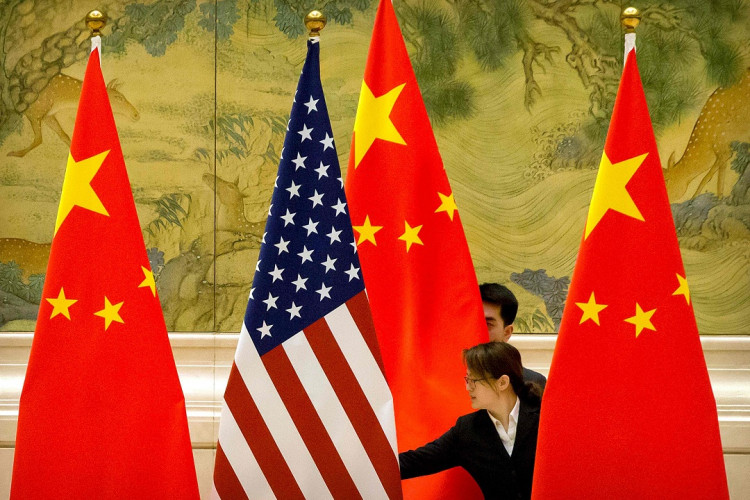The Biden administration on Friday confirmed substantial tariff increases on a range of Chinese imports, including a 100% duty on electric vehicles (EVs), in a strategic move to bolster domestic industries against China's state-supported production surge. The U.S. Trade Representative (USTR) announced that many of these tariffs will take effect on September 27, marking a significant escalation in trade tensions between the world's two largest economies.
The new tariffs encompass a 100% duty on Chinese EVs, a 50% tariff on solar cells, and a 25% duty on steel, aluminum, EV batteries, and key minerals. "These tough, targeted tariffs are necessary to counteract China's state-driven subsidies and technology transfer policies that have led to over-investment and excess production capacity," said Lael Brainard, the White House's top economic adviser, in an interview.
Adjustments to the punitive "Section 301" tariffs on $18 billion worth of goods, initially announced in May by President Biden, were minimal. The administration disregarded appeals from the auto industry to lower tariffs on graphite and critical minerals essential for EV battery production, citing continued dependence on Chinese supplies.
The USTR also unveiled a 50% duty on Chinese semiconductors, including new categories such as polysilicon used in solar panels and silicon wafers, set to commence in 2025. Tariffs on lithium-ion batteries and related components will increase to 25%, with the hike for EV batteries effective September 27 and for all other devices, including laptops and cell phones, on January 1, 2026.
Ms. Brainard emphasized the importance of diversifying the U.S. EV industry away from China's dominant supply chain. "The 100% tariff on electric vehicles reflects the significant unfair cost advantage that Chinese EVs have used to dominate car markets at a breathtaking pace in other parts of the world," she said. "That's not going to happen here under this administration's leadership."
China has criticized the tariff hikes as "bullying," asserting that its EV industry's success stems from innovation rather than government support. A spokesperson for China's embassy in Washington did not immediately respond to requests for comment.
The tariff increases coincide with Vice President Kamala Harris and former President Donald Trump actively engaging voters in auto and steel-producing states, each aiming to present a tough stance on China ahead of the upcoming presidential election. Mr. Trump has pledged to impose 60% tariffs on all Chinese imports if re-elected.
Other nations are following suit. The European Union and Canada have announced new import tariffs on Chinese EVs, with Canada matching the U.S. 100% duties. These actions reflect a growing international concern over China's influence in critical industries and its impact on global markets.
"Today's finalized tariff increases will target the harmful policies and practices of the People's Republic of China that continue to impact American workers and businesses," said U.S. Trade Representative Katherine Tai in a statement.
While the tariffs represent a significant escalation, the final decision provides some temporary relief for certain U.S. sectors. Port operators facing a new 25% tariff on massive ship-to-shore cranes-an industry where China holds a dominant position-will benefit from exclusions. The USTR will allow exemptions for Chinese port cranes ordered before May 14, provided they are delivered by May 14, 2026.
In the medical sector, tariffs on Chinese-made face masks and surgical gloves will rise to 50% from the initially proposed 25%, but their implementation is delayed to allow U.S. companies time to shift to non-Chinese suppliers. The duty on Chinese syringes will immediately increase to 100% from a previously planned 50%, though the USTR will grant a one-year exclusion for enteral syringes used to feed infants.
The administration remains steadfast in its approach to securing the future of U.S. strategic industries such as EVs, solar energy, and semiconductors. Washington is investing hundreds of billions of dollars in tax subsidies to develop domestic capabilities in these sectors.
"The U.S. must ensure that our industries can compete on a level playing field and that American workers are protected from unfair trade practices," Ms. Brainard stated.
Despite industry pleas, the USTR left unchanged the tariff increase to 25% from zero on lithium-ion batteries, minerals, and components. The administration's firm stance underscores its commitment to reducing dependency on Chinese imports in key areas.
The agency also indicated it would consider requests for tariff exclusions for certain Chinese industrial machinery categories, including equipment for purifying liquids, industrial robots, and printing machinery. Exclusions will be allowed for Chinese solar wafer and cell manufacturing equipment but not for equipment used to produce full solar modules.
In addition to the tariff hikes, the U.S. government announced plans to curb a surge in lower-value shipments entering the country without being subject to tariffs. The trade rule, known as de minimis, currently exempts foreign shipments from tariffs if the fair retail value of the items imported is $800 or less. Adjusting this rule aims to prevent Chinese products from entering the U.S. market with minimal scrutiny.





